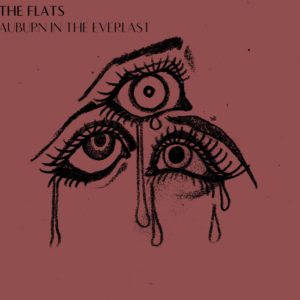Review: The Flats—’Auburn in the Everlast’ EP
Posted: by admin

The Flats is the songwriting vehicle of Toledo’s Chris Kerekes. Their debut LP, Liberation & the House in Blue, came out in 2014; besides a short split with Secret Space last year, the project has been relatively quiet since then. That is until this week, when the band rolled out three new singles with accompanying videos over three days, and released a brand new EP, Auburn in the Everlast, for free (!) on Bandcamp today. The new collection is the most inspired, cohesive set of tracks we’ve heard from The Flats so far—and the first great release of 2017.
On the Flats’ debut LP, they explored textured indie rock with pop sensibilities; their songs were often more impressive for their melody and mood than their development. Here, on their new EP, the band makes a few key progressions. First, you can tell that they pushed each song to its full potential, bolstering Kerekes’ sharp hooks with twinkling piano and titanic finishes. Secondly, Mat Kerekes’ production has improved remarkably, making the EP especially listenable. Whereas Liberation flirted with the emo tag, Auburn—I think inadvertently—exhibits a sense of sophistication that its predecessor did not. While i’m sure fans of Turnover’s latest will love this thing, it more closely resembles the early work of the National or Arcade Fire. But the way it feels is much more important than how it sounds. Auburn resonates because of Kerekes’ unique ability to capture and convey a complex and revelatory moment.
Auburn in the Everlast feels like it was forged in a singular sweeping moment of face-forward determination. The opening moments of the record find Kerekes rejuvenated, burying his apathy and sprinting towards boundless self-realization. This notion is felt then heard. It is present in the anthemic ‘Ooooooh’s on arena-sized opener “Electric Light;” but the record’s thesis doesn’t take shape until the second track, “Transparent,” where Kerekes offers his most resonant lyric to date in the gorgeous “Oh, What’s that dying in the garden? / And what’s that growing in its place?” Auburn’s central focus is this narrative of death and rebirth. Kerekes doesn’t spend the record killing or glorifying his demons, they’re already dead. Instead, he exalts the unknown like only a man who has made peace with his past can. A lot had to die in his garden to get here, but look what grew in its place.
8.3/10
FFO: Turnover, The National, Arcade Fire
—
Riley Savage | @RileyJohnSavage










